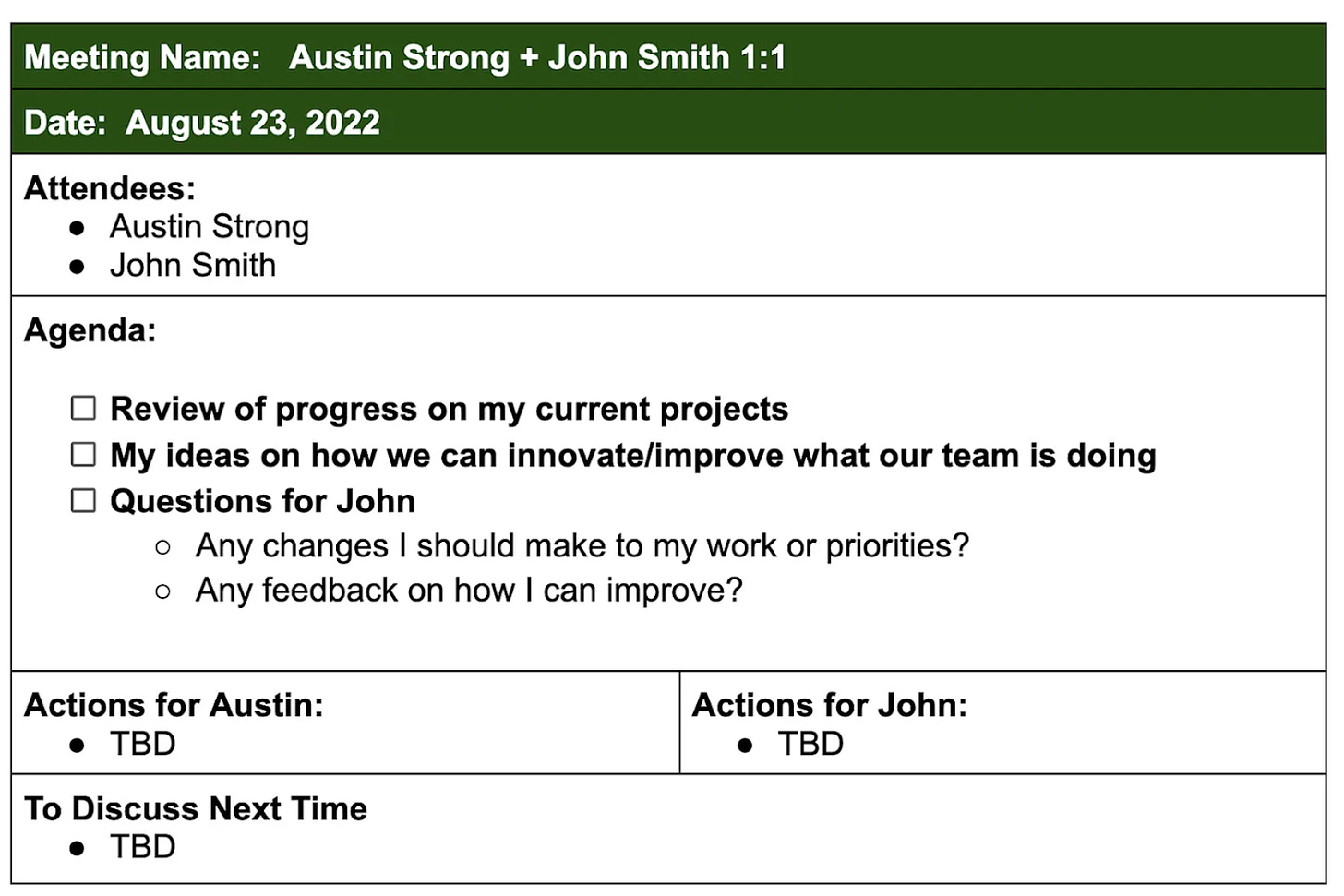Many of us have had (or will have) a manager who is a poor communicator at some point in our career. How do you avoid that becoming a career roadblock?
When You Hear Crickets…
A few months ago I had a friend reach out asking if he could use me as a sounding board for a career dilemma he was facing. As we sat down over lunch I asked him how things were going on his team.
“Honestly I’m not sure” he responded. “I like the work, and the team is pretty great, but I have no idea where I stand with my boss. He hardly responds to any messages I send. I don’t know if he thinks if I’m doing a great job or a bad one, because he never tells me anything. It’s just radio silence. We hardly talk, and it’s left me feeling pretty uncertain on if I have a future at this company or not.”
I could sympathize with the sentiment. Most of us can. Pretty much everyone at some point is going to work for somebody who may be gently described as a “poor communicator”.
We’ve all been through it before. You’re asked to complete a task or are looking for some direction/next steps on a project and shoot a message to your boss. Maybe it’s an email. Maybe it’s a slack message. It may even be a phone call or a text. Only to receive nothing but the sound of crickets.

That experience leaves us feeling unmoored and insecure. We start polishing our resumes just in case the one time our boss does respond, it is to let us know that our job is in jeopardy.
What’s tragic about all of this, is that much of the time managers do this completely unintentionally. They may think their teams are doing a great job and hold employees in high regard, but fail to communicate any of that. Some people are just genuinely bad communicators (case in point: my wife and I have certain friends who we would both aptly call “the worst texters in the world”).
Many managers get absolutely flooded with information from across the organization: company updates, messages from other departments, messages from their team, calls from their kids, etc… By possessing other skills (ex: being great technical experts, having great organizational minds, etc.), many of these execs have managed to rise to the top despite struggling deeply to stay on top of their inboxes or being great at communication in general.
If you find yourself with a manager of that breed, here are a few practical solutions:
#1: Never Compromise on Your 1:1 Meeting
People are often surprised when I tell them that their 1:1 with their manager is the single most important meeting on their calendar.
After all, many of us dislike 1:1’s with our boss (maybe because it feels like we’re hearkening back to the early years of having to meet with our teacher or school principal to discuss our performance in the classroom…). However, 1:1’s are probably the most critical career accelerant we have.

So why have a regular 1:1 meeting?
First, this is the single greatest forum for understanding what your boss prioritizes. This is your opportunity to ask the question “what can I help take off your plate?”. The employee who does that, and then executes and reports on what they’ve done to prioritize what their manager needed done on a regular basis is the one who quickly gains their manager’s trust and respect.
Secondly, you want to get feedback early & often so that you can course correct (if needed) or know that you should keep carrying on as you are. Think of it as getting constant feedback from a customer on a product, only this time you’re the product. You’ll get constant feedback on how you’re doing so there are no surprises at your year end review.
If you notice that your boss is a poor communicator, this touchpoint becomes all the more critical. Make sure to book regular/recurring time on your manager’s calendar. Never wait for them to set this up. As someone once told me “no one will care as much about your career as you, so act like it.”
Never compromise on this meeting. If you notice your boss is canceling your 1:1 on a regular basis, remind them that this touchpoint is incredibly important to you and make whatever arrangements are needed to keep the meeting alive and well. I’ve had many times when my boss (our company’s COO) hasn’t been able to meet in person during our normally scheduled weekly meeting, so instead of conveniently canceling we’ve both agreed to have a call while we’re commuting to/from home. This has kept our 1:1 habit alive and well.
At first the cadence should be 1X every two weeks (or even weekly). Maybe go to ~1X per month after you feel a good relationship is established. The 1:1 itself only needs to be ~15 – 30 mins long.
If you’ve never set up a 1:1 meeting with your manager before here’s an example of what that conversation (or email) could look like:
“Can I set up a regular time for us to meet? I want to meet to get your feedback on what I can do better. I’d really like to be a strong member of the team and would value any feedback you can offer on a regular basis. If there’s nothing major to discuss we can always keep these meetings short (15 mins max), but I really value the chance to get mentorship and feedback from you on a regular basis. Let me know what days/times work best for you!”
Last word on this: You should prep an agenda for your 1:1 meeting.
It doesn’t work well to just show up and hope your manager asks “how are you doing?” Rather you want to “manage up”. Be in control of the conversation. Make it easy for your boss to cover all the topics you care about discussing. Best practice is to send the agenda to your manager ~24 hours in advance so they know what you want to talk about and can put some thought into it vs. just answering on the fly. Here’s an example of what I send to my manager before our weekly 1:1

#2: Leave a Paper Trail
When I first started working in Strategy, I began to notice that my manager (one of the company’s “star” employees) had a strange habit of doing 2 things:
First: He would document notes + action items from almost every conversation that he had and then send out a quick follow up via Slack/Text/Email confirming the decision, next steps, and assignments from the chat or meeting.
Second: I noticed that he did the same thing whenever a project or task was completed. He’d send out a short email to the stakeholders (including his boss) explaining that the work was done, have a link to the deliverable, and describe what he thought the next steps were.
At first this seemed like a lot of onerous “overcommunication” to me. When I asked him why he took the time to write down / send out so much info that no one seemed to every respond to, he looked at me with a completely straight face and said:
“The biggest thing I’ve learned in business is the importance of CYB (“Covering Your Butt”). You want to have a clear paper trail of your work and conversations so that your boss and everyone that works with you has no excuse as to why something didn’t get done.”
For the first year we worked together I thought this was a bit paranoid. But the longer I spent at our company the more I realized how insightful this really was.

Time after time I began to see how this approach put my boss in a good light. There would often be moments when our C-Team would ask why XYZ hadn’t happened yet, and he could simply re-forward them the message (with the time/date stamp clearly indicated) from a few weeks ago. They would often sheepishly acknowledge they hadn’t stayed on top of their inbox, apologize, and then thank him for being on top of things. Over time, most execs began to pay much closer attention to any messages that came from my boss (I suspected that they moved him to their “favorites” filter on Email/Slack so they wouldn’t miss any future embarrassments)
There is a lot of truth to the Old Chinese proverb that “the faintest ink is more powerful than the strongest memory”.
#3: Adopt to Your Boss’s Preferred Medium…
One of the easiest ways to get your non-responding boss to communicate with you is to simply ask your manager what their preferred communication method is. If they prefer email, use that. If they prefer Slack use that. If they’re into carrier Pigeons, go make a stop at the local pet store. Adopt whatever your boss’s style is. If you come to learn that they never check email, don’t use that medium!

As a personal example here: I’ve learned that my current boss gets inundated with tons of communications from across the company spectrum. This means that he’s likely to miss an email or slack message from me. But he’s generally very responsive to text. I will often send him a detailed report via email, and then if it’s time sensitive, will just send him a quick text saying “When you have 5 mins can you read/respond to the Email I just sent you?”. I don’t over-use this tactic, but it’s been very effective.
A Final Word…
At this point it’s important to call out the obvious: While all of these tactics can be helpful in mitigating that problem of your boss being a bad communicator, they are just work-arounds.
The truth is the most impactful (but also hardest) thing you can do is to just directly let your boss know that they are, in fact, terrible at communicating with you. Most people who are bad at this skill generally don’t have any clue that it’s a weakness of theirs. Communication styles are often viewed as personal attributes and hence we are hesitant to point out the flaws in someone else’s methods (or lack thereof). It would be akin to pointing out that someone has bad breath or a terrible sense of fashion.
However, sometimes the greatest thing you can do for someone is to point out exactly that! (thank heavens to my friends who had the courage to let me know if I had something in my teeth before I went to a date or an interview…)
This of course needs to be done kindly, but it should also be candid. Something along the lines of “I wanted to provide some feedback that I think would help me be a lot more effective in doing my job. I’ve noticed that when I send you messages they tend not to get responded to for a long time if at all. This is really impacting my ability to deliver what you need. Could we talk about what the best solutions are here?”
All it takes is a little courage (and tact) to have that conversation, and your work life can become immeasurably easier.


